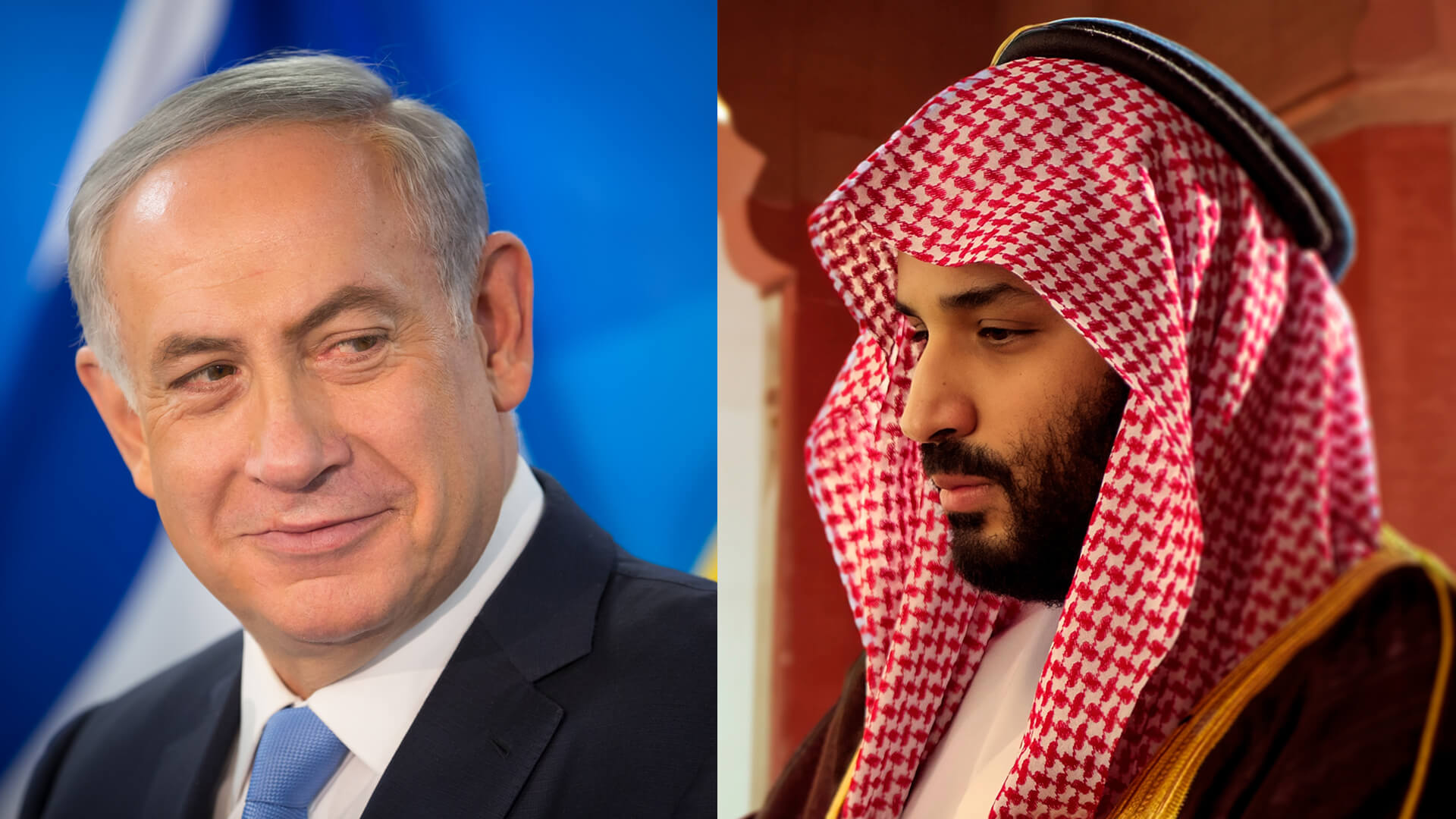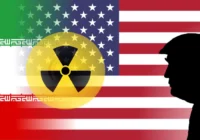Saudi Arabia and Israel are both asking a high price from the US, which hopes to establish formal diplomatic ties between the two middle eastern nations.
Israeli Minister of Strategic Affairs Ron Dermer, a confidant of Israeli Prime Minister Benjamin Netanyahu, visits Washington this week for talks with senior officials, including US President Joe Biden’s national security advisor, Jake Sullivan. In a phone call last month, Netanyahu told Biden that, as part of normalizing relations between Israel and Saudi Arabia. he wanted a security treaty with the United States that would be focused on deterring Iran
US and Israeli officials may not want to admit it, but there is little doubt that the Israeli demand complicates Biden’s already complex efforts to persuade the two nations to formalize their substantial informal ties.
Saudi Arabia has likewise asked for concessions that cater to its security and geopolitical interests. It is demanding security arrangements with the United States, US support for its peaceful nuclear program and greater access to sophisticated US weaponry. Like Israel, the kingdom wants a formalized security agreement, even if that accord may not target Iran as explicitly as Israel’s request does.
Saudi Arabia has also made Israeli moves to resolve its conflict with the Palestinians a pre-condition for a rapprochement.
The Iranian factor weighs on considerations
Saudi Arabia will likely be more circumspect following the China-mediated agreement in March reestablishing relations with Iran. Relations had ruptured in 2016 when mobs stormed Saudi diplomatic missions in Iran in protest against the execution of a prominent Saudi Shiite cleric. So far, from Saudi Arabia’s perspective, the agreement has only partially paid off.
To be sure, the agreement, alongside recent rapprochements between other Middle Eastern states, including Egypt, Turkey, Israel, Syria and the United Arab Emirates, has dialed down regional tensions. The kingdom and Iran have exchanged ministerial visits, reopened diplomatic missions, spoken about security and economic cooperation and invited each other’s leaders to visit. Iranian Foreign Minister Hossein Amir-Abdollahian visited Saudi Arabia last week for the first time since diplomatic relations resumed.
Most importantly, from Riyadh’s point of view, Iranian recent aggressive moves in Gulf waters target US and Israel-related vessels rather than Gulf state ships and exclude attacks on Saudi and Emirati oil and other infrastructure.
An informal agreement between the United States and Iran, involving a prisoner swap and a release of frozen Iranian funds, could lead to Iran refraining from attacking US shipping. The deal does not signal a possible return to the 2015 international agreement that curbed Iran’s nuclear program, even though Iran has reportedly slowed the pace at which it accumulates near-weapons-grade enriched uranium and diluted some of its stockpiles.
However, Netanyahu has made clear that nothing short of the complete termination of Iran’s program is good enough, as far as he is concerned. “Arrangements that do not dismantle Iran’s nuclear infrastructure do not stop its nuclear program and will only provide it with funds that will go to terrorist elements sponsored by Iran,” Netanyahu’s office said.
The statement contrasts starkly with a US position articulated in March by Joint Chiefs of Staff chairman Mark Milley. General Milley told Congress the US would not allow Iran to “have a fielded nuclear weapon.” The key word here is “fielded.” This leaves a lot more wiggle room than Israel is comfortable with.
Saudi Arabia and Israel may be closer than meets the eye when it comes to Iran, but they strike different tones. Moreover, Israel is less inclined to deal with the current Iranian regime than Saudi Arabia is.
Addressing a closed meeting in Europe with Middle East experts, a senior Saudi official recently said it was the kingdom’s “hope” to resolve issues with Iran but cautioned that “it is too simple to think in that way—and also dangerous, because if you don’t see results you will think that de-escalation is in vain or has no results.” He likened Saudi-Iranian relations to Europe’s relations with Russia. Europe has “diplomatic relations with Russia, but you’re at war with Russia,” the official said.
The official conceded that, because of US sanctions, prospects for economic cooperation with Iran remained limited without reviving the Iranian nuclear deal. Phrased differently, Saudi-Iranian relations depend as much on policies crafted in Riyadh and Tehran as on policies pursued in Washington.
What is Netanyahu planning?
All this casts a different light on Netanyahu’s demand for an Iran-focused security agreement with the United States.
Mr. Netanyahu has made establishing diplomatic relations with Saudi Arabia a crown jewel of his foreign policy. To achieve that, Israel has reconciled itself to Saudi Arabia enriching uranium for research purposes as part of a US-Saudi deal.
Netanyahu has also indicated he would be willing to gesture to Palestinians if a normalization deal with Saudi Arabia depended on it. He suggested he would not let ultra-conservative religious and ultranationalist coalition members block an agreement.
It’s not clear that the prime minister could make gestures that would be minimally acceptable to the Saudis and avoid breaking up his coalition, the most hardline in Israeli history. This month’s appointment of Saudi Arabia’s first ambassador to the Palestinians illustrated the gap that Netanyahu would have to bridge. Israeli Foreign Minister Eli Cohen did not object to the move but asserted Israel would not permit the opening of diplomatic representations for the Palestinians in Jerusalem. Israel views united Jerusalem as its capital, while the Palestinians see the east of the city, captured by Israel during the 1967 Six-Day War, as the capital of a future Palestinian state.
As the custodian of Islam’s holiest cities, Mecca and Medina, Saudi Arabia would be hard-pressed to make concessions on Jerusalem, the faith’s third holiest city.
As a result, the question is what Netanyahu wants to achieve with his demand for an anti-Iran security deal with the United States. Certainly, the deal would ensure Israel’s seat at the table and bolster Israel’s position vis-à-vis Iran. Netanyahu may also want to complicate US-Saudi talks about security arrangements in the belief that, without a solid agreement with the United States, the kingdom would have a greater interest in formalizing relations with Israel sooner than later.
Either way, Israel remains a player with the potential to be disruptive rather than constructive, depending on how Mr. Netanyahu defines Israel and his political interests.
[The Turbulent World first published this piece.]
[Anton Schauble edited this piece.]
The views expressed in this article are the author’s own and do not necessarily reflect Fair Observer’s editorial policy.
Support Fair Observer
We rely on your support for our independence, diversity and quality.
For more than 10 years, Fair Observer has been free, fair and independent. No billionaire owns us, no advertisers control us. We are a reader-supported nonprofit. Unlike many other publications, we keep our content free for readers regardless of where they live or whether they can afford to pay. We have no paywalls and no ads.
In the post-truth era of fake news, echo chambers and filter bubbles, we publish a plurality of perspectives from around the world. Anyone can publish with us, but everyone goes through a rigorous editorial process. So, you get fact-checked, well-reasoned content instead of noise.
We publish 2,500+ voices from 90+ countries. We also conduct education and training programs
on subjects ranging from digital media and journalism to writing and critical thinking. This
doesn’t come cheap. Servers, editors, trainers and web developers cost
money.
Please consider supporting us on a regular basis as a recurring donor or a
sustaining member.
Will you support FO’s journalism?
We rely on your support for our independence, diversity and quality.







Comment